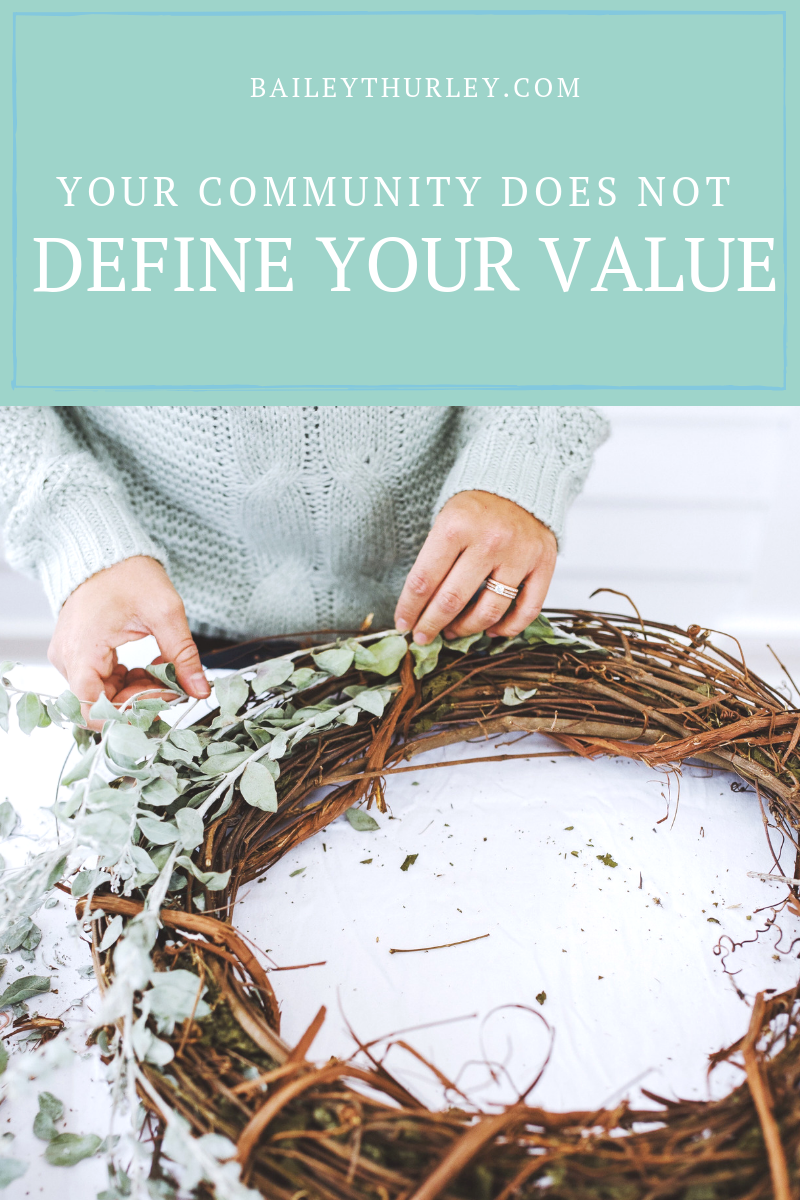When I began my mentoring relationship in undergrad, I was willing and excited to dive in, but also going through a dark period in my life. The start of my junior year led me to confront a lot of my unmet expectations about community. I thought when I left for college that I would easily make the best girlfriends for life and constantly be basking in the sun of friendship. Yet, I found myself mourning the absence of my best friends hundreds of miles away.
Even though my college setting was pretty idyllic—sunny and 75 year round—my year felt cloudy and dark. To make matters worse, my hometown best friend was making new friends and moving forward with her life in college, while I felt left behind and completely unwanted.
So, this new mentorship seemed like a great fit at the time. Yet, the moment that I walked into our chapel to meet with her, something snapped. Fear set in and I turned on “Perfect Bailey.” I wanted her to think I was amazing. I wanted her to think I was spiritually mature, popular, and a high-achiever. High achievers don’t have problems, right? We are too busy achieving to have identity crises.
My lack of vulnerability with my mentor limited how much we could connect. We had great discussions, like you would with any casual acquaintance, but I was hiding some real ugly going on in my heart. I would enter and leave in tears but made sure a smile was plastered on my face for our one-hour weekly meeting.
When I finally confessed to my mentor what had been going on in my life, she was shocked and a little hurt. I could see the look on her face. She felt like we were growing and learning together when really there was this other piece of me missing from the conversation. We had to work through the pain of broken trust in our mentorship that I had caused by not being wholly honest.
After my confession, we both began to see a change in the way we shared our struggles. We allowed ourselves to be open and honest on the real, painful things. This significant step produced the fruit that we had longed to see—mutual vulnerability leading to real transformation.
The vulnerability gave us something to work with and opportunities to invite God to speak truth into us both.
When our conversation remained on the surface—and I only told her about all my amazingness—there was nothing to work on, because fictional characters are pretty flawless.
Brené Brown (the Queen Bee of vulnerability) says, “We cultivate love when we allow our most vulnerable and powerful selves to be deeply seen and known.”[1] Vulnerability is a mutual process; you can’t be vulnerable by yourself. If you want to cultivate vulnerability in your mentorship, you first need to demonstrate it. Allow yourself to be seen not just physically, but emotionally, as well.
After attending a leadership conference where speaker Patrick Lencioni said, “Show them your sweat stains.” I have embraced the mantra as my view on vulnerability. I am also a sweaty person so the principal applies pretty literally to me too. I’m human! I am secure in Christ! It’s ok to let people see the real me—and I hope they love me for it. It’s the same idea with mentorship show them your sweat stains and trust that God uses that to build connection.
[1] Brene Brown, The Gifts of Imperfection: Let Go of Who You Think You’re Suppose to be and Embrace Who You Are (Center City, MN: Hazelden, 2010), 26.





